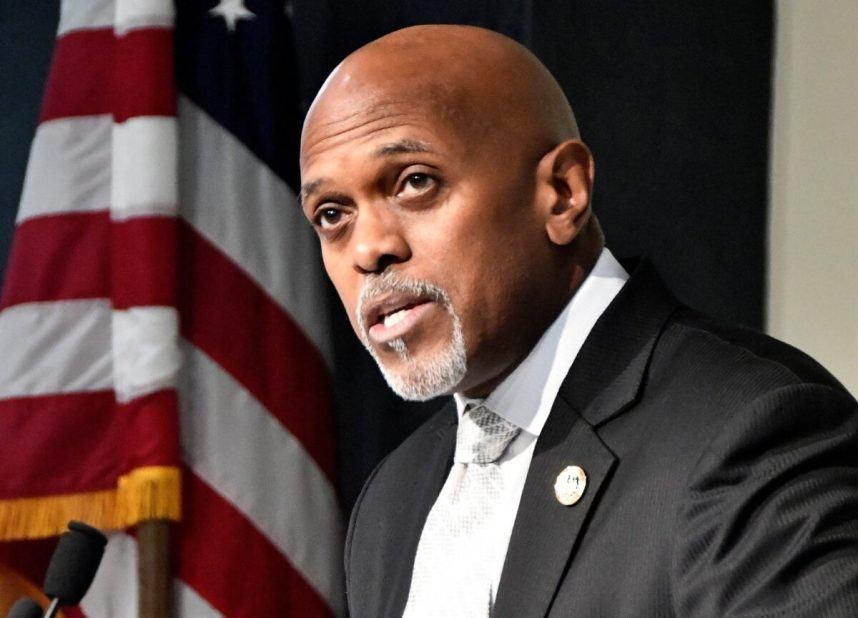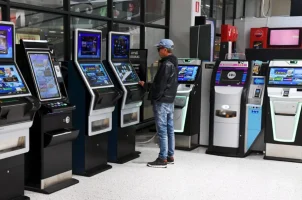Online Casino Discussions in Maryland Begin, Marked by Concerns
Posted on: January 24, 2024, 10:16h.
Last updated on: January 24, 2024, 10:53h.
Maryland is a primary focus for national iGaming proponents this year. With that in mind, State Senator Ron Watson (D-Prince George) has confirmed his iGaming bill to legalize online casino gambling is coming in 2024, and will include multistate poker.

Watson tried to get online poker and casino gaming legalized in 2023, but the bill never left the Senate Budget & Taxation Committee. Despite the failure and opposition from some unions, iGaming still had public support at the end of 2023.
Now, even before the 2024 effort begins, there are again concerns. Issues quickly came to the floor during a House Ways & Means Committee hearing this month, during which the committee was briefed on an online casino study contracted by the Maryland Lottery and Gaming Control Commission. The study by the Innovation Group indicated Maryland’s brick-and-mortar casino revenues could decrease 10% annually if iGaming is approved.
In dollar amounts, that comes to about $218 million in revenue in 2029 when and if Maryland online casinos reach maturity.
Del. Jheanelle Wilkins also raised concerns about the study’s lack of diversity, equity, and inclusion information. Lawmakers said women and minority-owned businesses and Historically Black Colleges and Universities (HBCUs) must be addressed in a bill.
There are also concerns regarding potential job losses at physical casinos, as the study found a possible loss of 2,700 jobs driven by less foot traffic to the properties.
What’s in the Bill
Some of the items in the upcoming proposal include a $1 million fee for a four-year license. Watson had previously proposed a $500K fee. The new bill also calls for levying a 46.5% tax rate on online gambling.
The proposal includes an allowance for multistate online poker. That means Maryland could join the Multi-State iGaming Agreement (MSIGA) and allow operators to grow networks in Maryland.
Watson says online gaming will allow casinos to reach new customers and bring in more money for the state.
We can play at microstakes, you can play for nickels, dimes and quarters, you know, 24 hours a day.” Watson said. “And that is just a continuous revenue stream for the state that we’re currently not capturing.”
The Maryland Lottery and Gaming Control Agency says its study shows the state could generate $533 million in the first year if online gaming is legalized.
Currently, Maryland faces a $400 million deficit.
Concerns Continue, but Voters Tend to Favor Gaming
Maryland voters have approved expanding gaming three times over the last 16 years. Voters approved five land-based casinos in 2008. In 2012, they approved a sixth. Voters OK’d sports betting in 2020 and it launched two years later.
Watson is pushing back on the early concerns by saying he believes the addition of casinos in Virginia will cut into the Maryland casino industry. He also pointed to promotions as “one of the most valuable pieces” that casinos can offer to drive people into brick-and-mortar casinos.
You’re using the online platform to advertise the brick-and-mortar offerings,” he said.
If Watson’s bill was passed and signed by Governor Wes Moore, it would need voter approval in November.
Related News Articles
Google to Roll Out Gambling Apps on Google Play India
Finland Likely a Step Closer to Removing Veikkaus Gaming Monopoly
India iGaming Industry Has Fears of Chilling Effect From New Tax
Playtech Opens Live Dealer Studio in Pennsylvania for iGaming B2B Ops
Most Popular
Las Vegas Overstated F1 Race’s Vegas Impact — Report
Mega Millions Reportedly Mulling Substantial Ticket Price Increase
NoMad Hotel to Check Out of Park MGM on Las Vegas Strip
Most Commented
-
End of the Line for Las Vegas Monorail
— April 5, 2024 — 90 Comments -
Mega Millions Reportedly Mulling Substantial Ticket Price Increase
— April 16, 2024 — 8 Comments -
Long Island Casino Opponents Love New York Licensing Delays
— March 27, 2024 — 5 Comments
















No comments yet